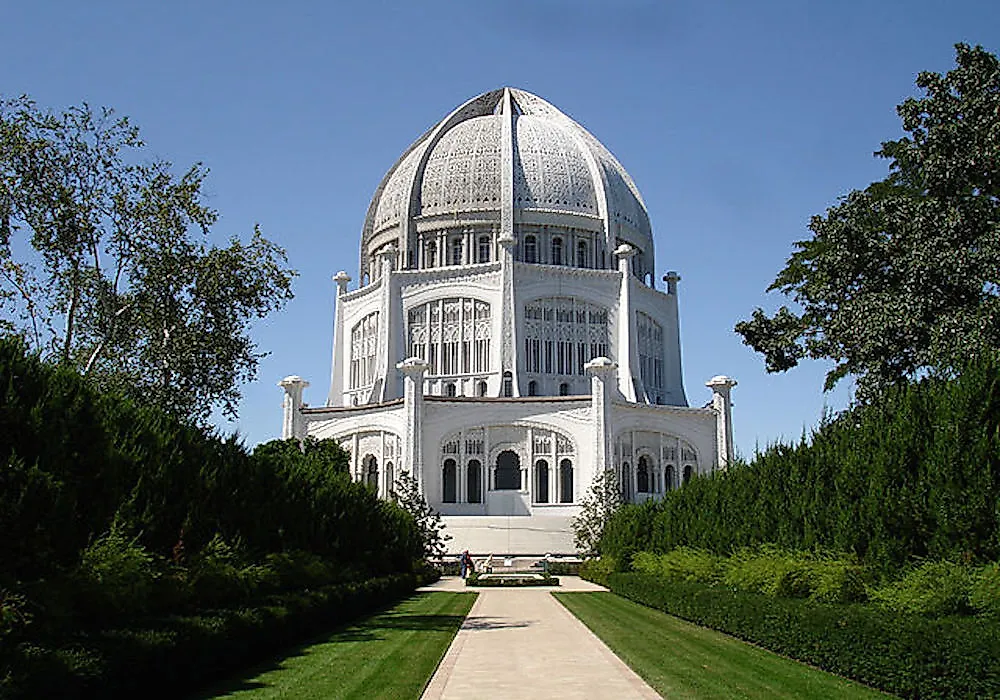The Baha’i Faith presents an intriguing tapestry of spiritual principles and ethical guidelines, aiming to cultivate a global ethos that transcends cultural and geographical boundaries. As we navigate the complexity of modern existence, the teachings of the Baha’u’llah offer disparate yet coherent insights designed to foster a transformative paradigm shift in human consciousness. By delving into these teachings, one may discern a profound promise for a better world—a world enriched by unity, justice, and the unfettered pursuit of knowledge.
At the heart of Baha’i teachings lies the concept of unity in diversity. This principle is not merely an abstract ideal but a profound reality that celebrates the rich tapestry of human experience. The Baha’i Faith posits that all world religions stem from a singular divine source, encouraging adherents to appreciate and honor the myriad ways in which humanity has sought to understand its purpose. This perspective cultivates an atmosphere of respect and collaboration, wherein individuals acknowledge their shared spiritual heritage while embracing their unique cultural identities.
The Bahá’í notion of community plays an instrumental role in actualizing this unity. Engaging in collective endeavors, Baha’is work toward creating vibrant and inclusive communities that are grounded in mutual respect and understanding. Such communities are seen as essential laboratories of social change, where the principles of equality, justice, and service are practiced and celebrated. Through local and global initiatives, Baha’is strive to imbue everyday life with a sense of purpose that extends beyond the self and into the collective wellbeing of humanity.
Integral to the Baha’i Faith is the emphasis on equality, particularly gender equality. Baha’u’llah categorically declared the imperative of dismantling barriers that perpetuate gender discrimination. The Faith advocates for the empowerment of women as a prerequisite for societal transformation, positing that the advancement of women is synonymous with the advancement of society as a whole. This radical re-envisioning of gender dynamics not only encourages the participation of women in decision-making processes but also acknowledges the indispensable role they play in the moral and intellectual upliftment of humanity.
Furthermore, the Baha’i teachings emphasize the need for education as a foundational element of personal and societal development. The acquisition of knowledge, both material and spiritual, is heralded as a vital avenue towards achieving a just and peaceful society. Baha’is are urged to pursue lifelong learning and to facilitate educational opportunities for all. This commitment to education underscores the belief that fostering a well-informed and morally conscious populace is key to addressing the myriad challenges confronting the world today.
Additionally, the Call for Justice resonates deeply within the teachings of the Baha’i Faith. Baha’is uphold justice as a non-negotiable principle, advocating for equitable treatment for every individual irrespective of their background or circumstances. The vision of justice espoused by Baha’u’llah propels a collective movement towards the eradication of systemic inequalities that plague societies. The Faith implores individuals to interrogate the very structures that perpetuate oppression and injustice, inspiring grassroots activism aimed at cultivating societies rooted in fairness and ethical governance.
As we reflect on the Baha’i Faith as a catalyst for a better world, one cannot overlook the significance of service to humanity. Baha’is are called to contribute selflessly to the betterment of their communities. This ethos of service engenders a profound sense of responsibility and interconnectedness, encouraging individuals to seek ways to alleviate suffering and promote welfare on a local, national, and global scale. Such acts of service manifest in various forms—be it through social, economic, or environmental initiatives—and evoke a spirit of collective endeavor that underscores the shared custodianship of the planet.
Moreover, the interconnectedness of humanity extends beyond immediate communities; Baha’is envision a world where international collaboration flourishes in the face of global challenges. The Baha’i teachings advocate for peace as a fundamental principle of human existence, emphasizing the need for dialogue and understanding among nations. In a world rife with division and discord, the Baha’i Faith urges humanity to cultivate world citizenship that transcends parochial loyalties, fostering an environment conducive to harmonious coexistence.
In addition to addressing societal issues, the Baha’i Faith encourages a profound engagement with the spiritual dimension of life. Through prayer and meditation, believers are urged to nurture their relationship with the Divine, facilitating personal growth and inner peace. This spiritual grounding empowers individuals to navigate life’s tempestuous waters with grace and resilience, embodying the principles of the Faith in tangible ways. The transformative power of spirituality thus coalesces with social action, creating a bi-directional pathway that nourishes the individual’s soul while simultaneously contributing to the greater good.
In conclusion, the Baha’i Faith serves as a compelling framework for envisioning a world replete with justice, unity, and service. By promoting principles that challenge conventional paradigms and incite curiosity about our collective potential, the teachings of Baha’u’llah invite individuals to embark on a transformative journey. This odyssey calls for a commitment to fostering understanding, nurturing communities, and advocating for the dignity of all. In embracing the teachings of the Baha’i Faith, humanity may indeed find itself awakening to a new era of enlightenment, harmony, and shared responsibility—a world poised for a better future.
